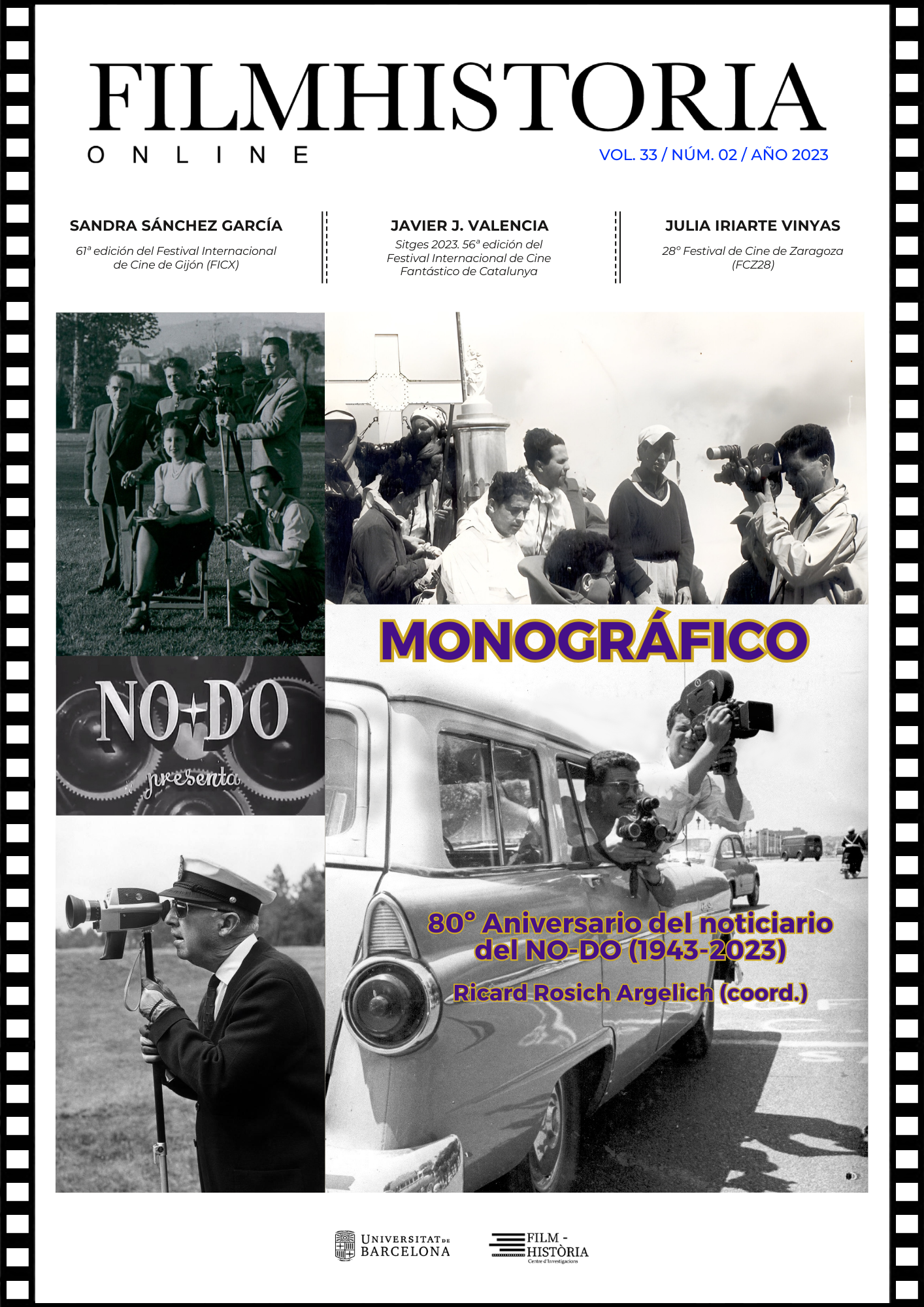THE NO-DO AND CELEBRATION OF THE INTERNATIONAL EUCHARISTIC CONGRESS OF BARCELONA 1952
DOI:
https://doi.org/10.1344/fh.2023.33.2.80-104Keywords:
NO-DO, International Eucharistic Congress, Barcelona, 1952, francoist dictatorship.Abstract
The valuable historical contribution provided by the reports of the Noticiario Español NO-DO born in 1943, which this year celebrates its eightieth anniversary, is becoming increasingly important among historians. The analysis offered by this work wants to show the transcendence and influence of the NO-DO in a society governed by a dictatorial regime as was Francoism, basing on a specific case of study: the representation that the 35th International Eucharistic Congress had in the images of the newsreel, recorded 71 years ago in Barcelona, in 1952. This act not only marked the first opening of the Franco regime to the outside world, but also the transformation of Barcelona in terms of housing. The International Eucharistic Congress wanted to perpetuate his memory by building a new neighborhood: the Houses of the Eucharistic Congress, which involved the demolition of the shacks located at the Diagonal Avenue, the place where the last religious act of the Congress would be held. In spite of everything, the NO-DO disseminated its particular vision of the events, showing some things but at the same time hiding others, and therefore this article focuses on knowing what elements were recorded by the newsreel’s cameras about an event that was so important for the Nationalcatolicism and what official discourse was held, contrasting it with a critical vision to identify the elements that were ignored or manipulated and the silences that existed.







